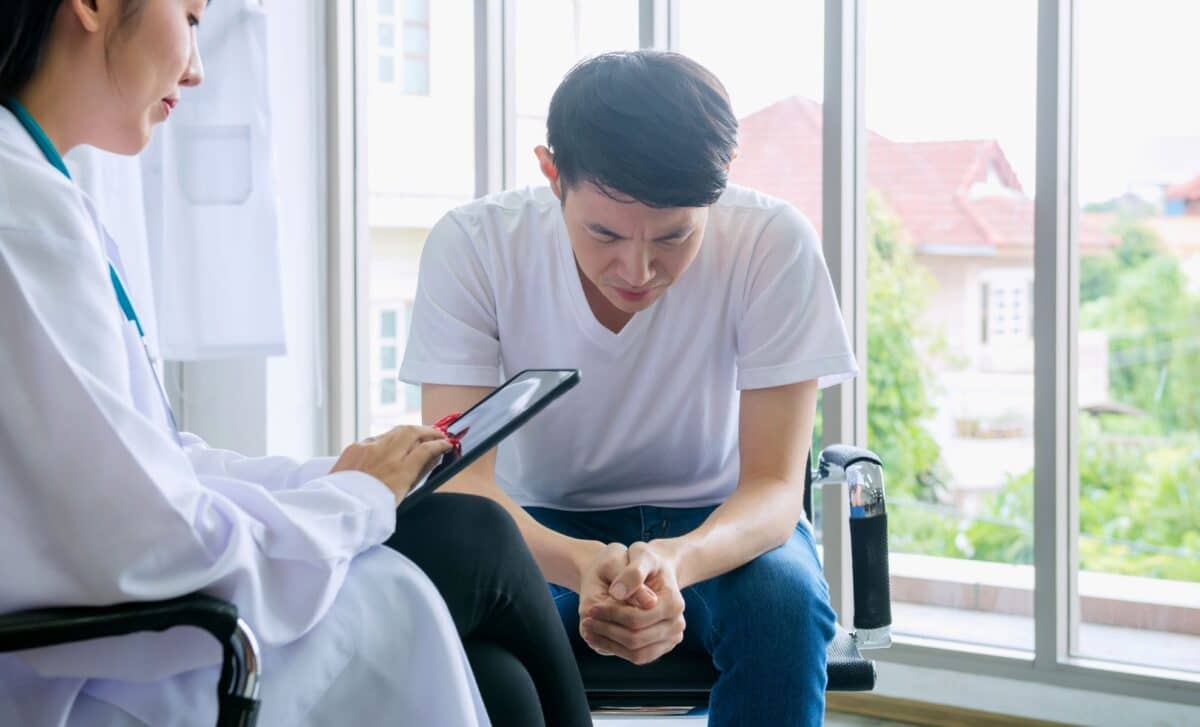If you are living in the UK and suffer from a mental health condition that affects your daily life, you may be eligible for financial help from the government. Often this support is overlooked, and many potential claimants are unaware that they are entitled to it. From April, you could receive up to £184 a week from the Department for Work and Pensions (DWP) to help make your life easier.
Personal Independence Payment (PIP)
The PIP (Personal Independence Payment) is a scheme used by over a million people in the UK to help with living costs. It is based on how your condition affects your daily activities, rather than the condition itself. Income level does not influence the payment.
PIP comprises two components. If you qualify for both the daily living and mobility components, you could receive up to £184.30 a week when benefits increase in April 2024. The higher rate for daily living is £108.55 a week, while the lower rate is £72.65. The mobility component is paid at a higher rate of £75.75 per week and £28.70 at the lower rate.
Eligibility for PIP
You may qualify for Personal Independence Payment if you meet the following criteria, as defined by the government:
- You’re 16 or over
- You have a long-term physical or mental health condition or disability
- You have difficulty performing certain everyday tasks or moving around
- You expect these difficulties to persist for at least 12 months from the onset
There are two parts to PIP: a Daily Living Part, for people who need help with everyday tasks, and a Mobility Part, for people who need help getting around. Eligibility for one or both components depends on the level of impairment.
Daily Living Part
To qualify for the daily living part of PIP, a person may need help with tasks such as :
- Preparing food
- Eating and drinking
- Managing your medications or treatments
- Bathing and personal hygiene
- Using the toilet
- Dressing and undressing
- Reading
- Managing finances
- Social interaction
- Communication and understanding
Mobility Part
You may be eligible for the mobility component of PIP if you require assistance with:
- Planning and following a route
- Physical movement
- Leaving your home
You may still be able to get this part of PIP If you experience problems with your mobility because of a mental health condition, such as anxiety,
PIP Assessment Process for Mental Health Patients
The application process for PIP involves completing a questionnaire. This is used to determine the level of financial support you need, based on your mobility and ability to carry out everyday tasks. The factors considered for each task are:
- Your ability to perform it safely
- The time it takes you
- The frequency of your condition affecting this activity
- Whether you need assistance, either from a person or with additional equipment
For each activity in the assessment, points are awarded, which vary according to your ability and the degree of help you need. The overall score for each activity in a section determines the amount of PIP you receive.
It is important to note that PIP is not influenced by factors such as employment status, income, savings, or National Insurance contributions. Additionally, receiving other benefits does not disqualify you from claiming PIP.
What to do if You Have Just Returned From Abroad?
If you have lived abroad and have recently returned to the UK, you’ll usually need to :
- Have lived in England, Scotland or Wales for at least 2 of the last 3 years.
- Be resident in one of these countries at the time of application.
If you have recently returned from living in the EU, Switzerland, Norway, Iceland or Liechtenstein, you may be eligible for PIP sooner.
People living in Scotland must apply for ADP (Adult Disability Payment).
How to Submit Your Application
To apply for Personal Independence Payment (PIP), you can do so by :
Phone
- Call the PIP New Claims line. Upon contacting the phone line, you will receive a form that enquires about your condition.
- If further information is required, an assessment may be necessary.
Before getting started, you will need :
- Your contact details, such as your telephone number
- Your date of birth
- Your National Insurance number, if you have one (you can find it on tax, pension and benefit letters)
- Your bank or building society account number and sort code
- the name, address and telephone number of your doctor or health worker
- The dates and addresses of your stays in retirement homes or hospitals
- The dates of any stays abroad of more than four consecutive weeks and the countries visited
Telephone: 0800 917 2222
Text phone: 0800 917 7777
Relay UK (if you cannot hear or speak on the phone): 18001 then 0800 917 2222
British Sign Language (BSL) video relay service
Calling from abroad: +44 191 218 7766
Monday to Friday, 8am to 5pm
Online PIP Application
To start your online application, you will need your :
- National Insurance Number
- E-mail address
- Mobile phone number
Online PIP applications are only available in certain regions. You will need to check your postcode when you start your application.










